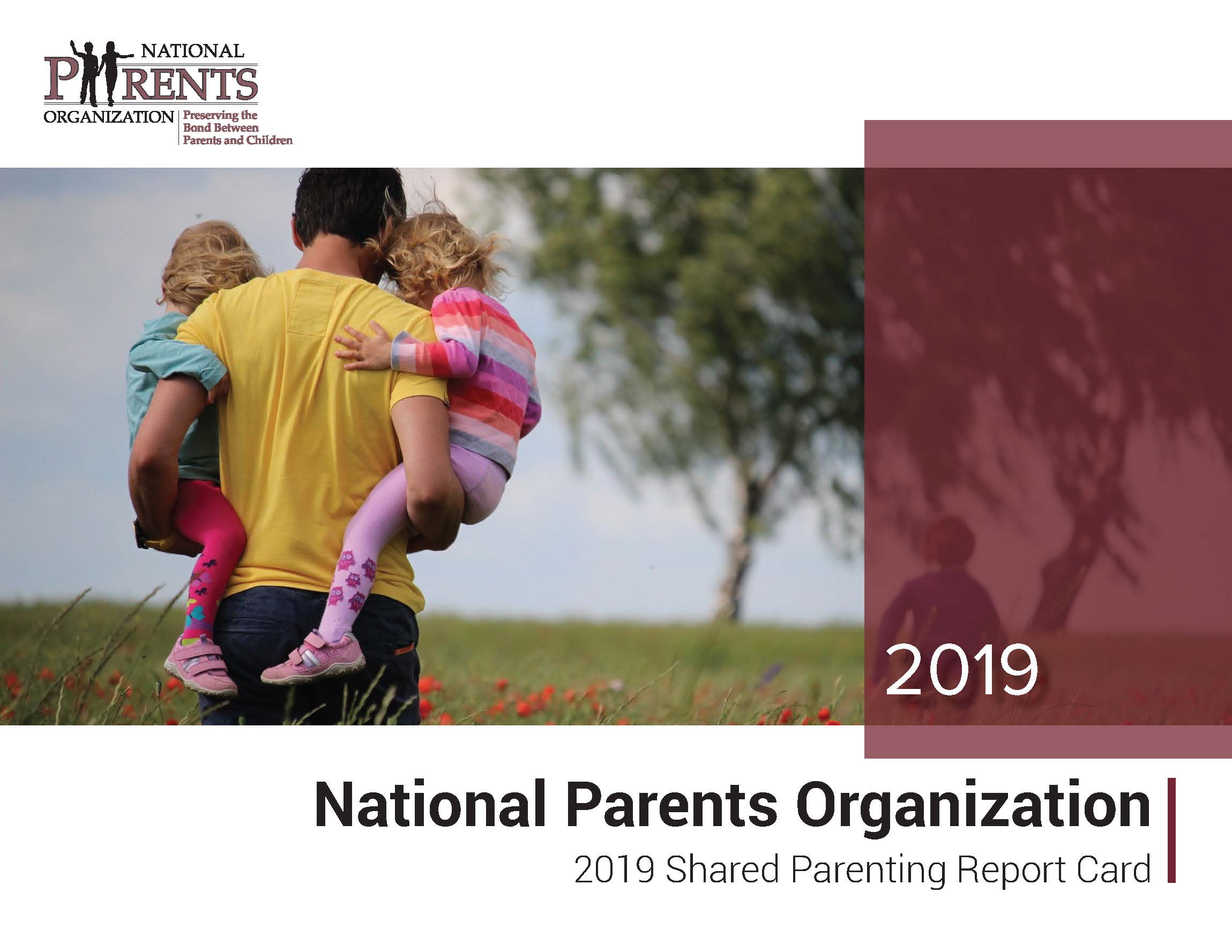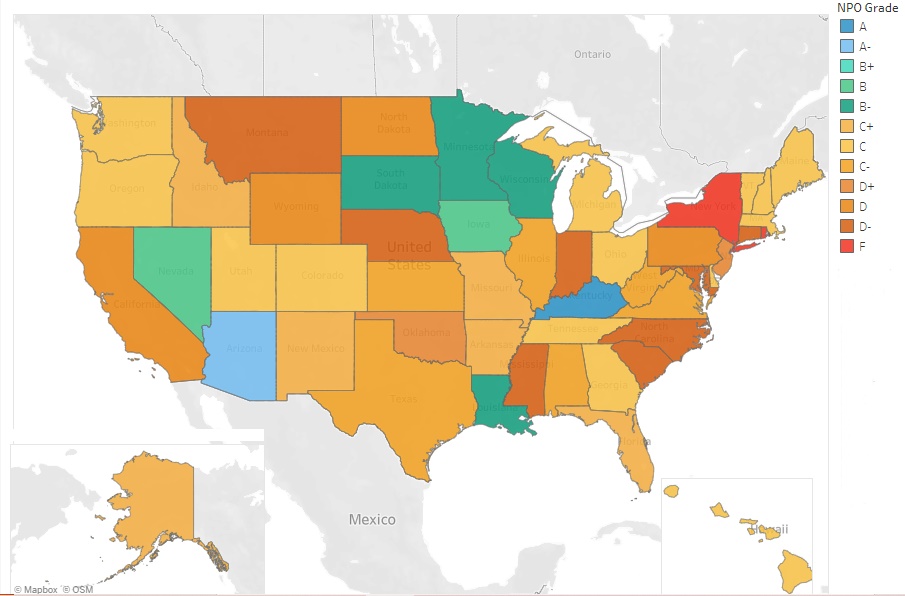National Parents Organization seeks to promote children’s well-being by making equal shared parenting the norm when parents are living apart. There is a compelling, and growing consensus among researchers that true shared parenting by separated parents is usually best for children, even when there is (non-violent) conflict between the parents and even when the parents do not initially agree to shared parenting. And the benefits to children increase as they have more equal time with each of their fit and loving parents.
To determine the degree to which state legislatures had absorbed and acted on this consensus about what parenting arrangements work best for children when parents are living separately, in 2014 NPO undertook the first ever evaluation of states’ statutory provisions promoting shared parenting. This 2019 report updates and enhances the 2014 report.
NPO found that, despite the research that now strongly supports the desirability of a legal presumption of equal shared parenting, many states have been extremely slow to alter their statutes concerning custody of children when parents live apart. There are, since 2014, signs of improvement and, in a few cases, extraordinary improvement. But far too many states lag behind the times and, in so doing, fail to promote the best interest of their children.
In the 2019 NPO shared parenting study:
- 2 states received ‘A’s
- 7 states and the District of Columbia ‘B’s
- 25 states received ‘C’s
- 15 states received ‘D’s
- 2 states received ‘F’s
NPO calls on those states with weak statutory provisions concerning shared parenting to review the research on the well-being of children whose parents are separated and to enact statutes creating a rebuttable presumption of equal shared parenting. Children are entitled to the presumption that both of their fit and loving parents will continue to be fully engaged in their upbringing regardless of whether or not the parents are still living together.


